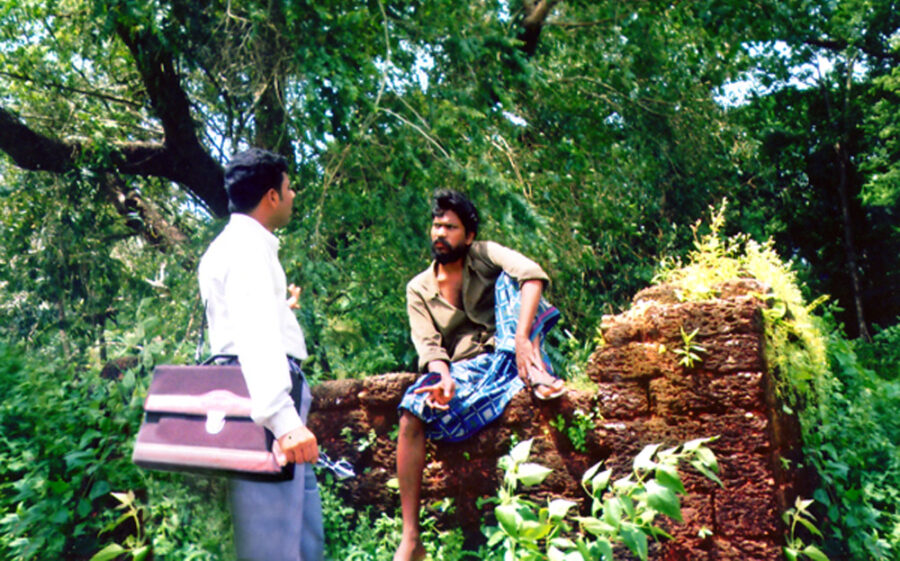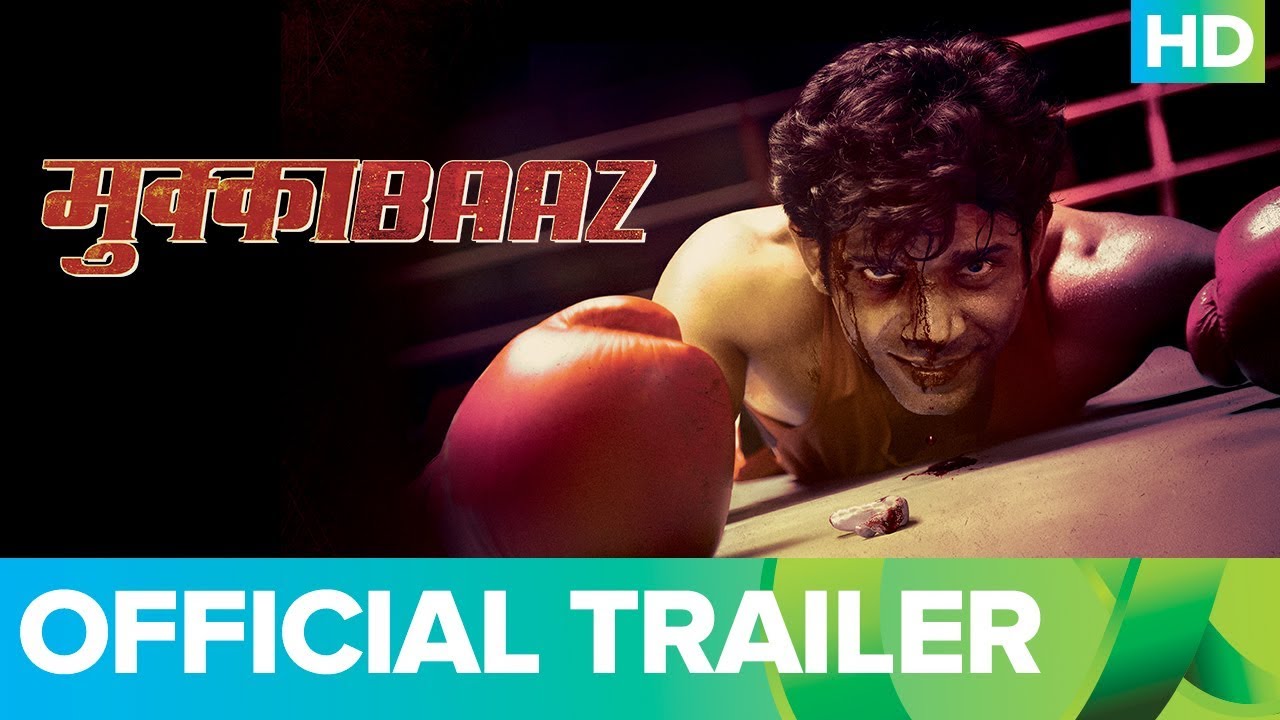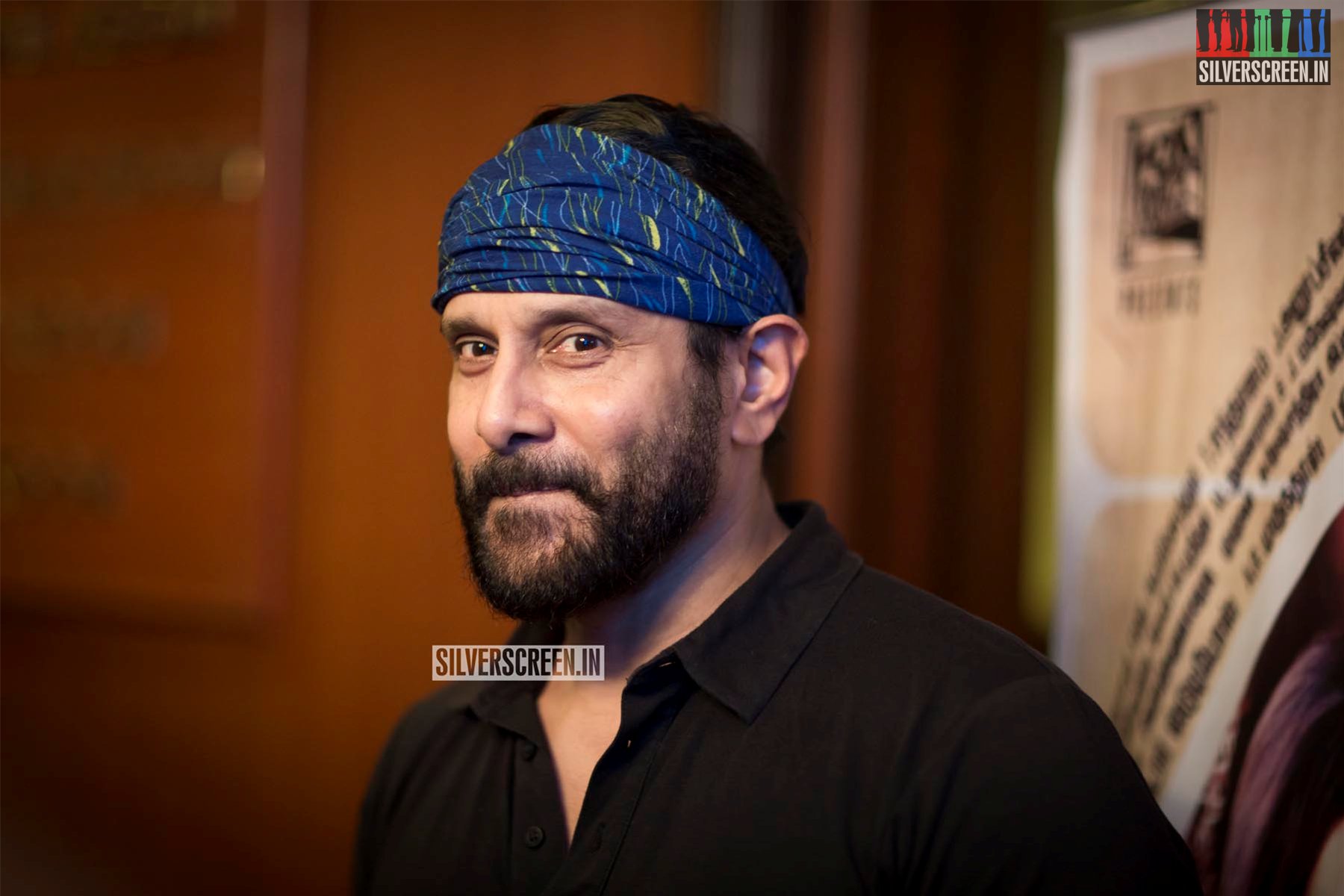The first images of ‘Varoo‘ (Come With Me, 2003) are disoriented. The camera shakes and zooms in and out as the film hurriedly documents the scenes at a village bus-stop. The soundscape is scattered too. The film’s rough texture, though, is a red herring. Over its runtime of 17 minutes, Varoo poses to the viewers a philosophical conundrum in the form of an uncomplicated premise, with a sharp sense of humour.
Varoo is Kerala State Film Award-winning Sudevan’s first direction venture. He and Achuthanandan, his close friend and neighbour, made the short film with Rs 5,000 donated by their friends. The film was shot in their village Peringode, which lies over 160 kilometers away from Kochi and its film industry, using a camcorder they borrowed from a young engineering student in the neighborhood. She she was, apparently, the only person the remote village who owned a camera.
Varoo is centered around two nameless characters – a young man (Achuthanandan) who arrives in a village on work, and a villager (Ashok Kumar) whom he asks for directions. The first man is well-dressed – formal pants, tucked-in shirt, an office sling bag around his shoulder and carefully-combed hair. He alights from a bus and starts to walk to the address in hand. When he finds himself lost on an unpaved path in the middle of nowhere, he asks a local man for directions. The audience isn’t privy to the exchange between them (Sudevan uses minimal dialogues) but the camera is; it jolts and zooms in to the villager’s face, signalling a change in the narrative tone. “Varoo!” (Come!) orders the villager as he begins to lead the young man into a haze of by-lanes and wild pathways.
What is interesting about Varoo is that it is at once a friendly home-movie and a powerful film with a deep sub-text. Sudevan turns a seemingly everyday situation into a question about the choices human beings make in life – the ideologies they pursue or the career paths they embark upon. The minimalism in his filmmaking is gorgeous. Never does he take away the narrative focus from the two men’s walk or become gnomic. The dialogues are rather straightforward; so are the camera movements and editing.
Sudevan plays with the contrast between the two characters’ personalities. While the young man is a relatable figure, the villager stays aloof. The film brilliantly creates a mystic aura around him that works as a foil to the former’s banality. During the exhausting and seemingly-endless journey through the village’s labyrinth-like landscape that seems far removed from civilisation, the audience empathy is with the young man whose initial enthusiasm drains away. The polish in his persona vanishes, the shirt comes untucked, and he snaps at the villager. Slowly, the irritation gives way to a cold sense of fear.
Recommended
When they reach the end of the road – there is a proverbial sunset shot with a witty twist – the young man is completely consumed by his anxiety and desperation to return to a familiar surrounding. Does the beauty of the destination matter to a traveller who isn’t ready to be there?
Actor Ashok Kumar, who plays the villager, went on to win a Kerala State Film Award for ‘Second Best Actor’ (this later became the Best Character Actor) for Sudevan’s feature film debut Cr No: 89, in 2013. While Varoo might fade in comparison to Sudevan’s later works such as Cr No: 83 or Thattumpurathappan, this might be his most earnest and assured film yet. With the restraint and clarity of thought of a master storyteller, he locates the complexities of the world in the bylanes of his little village.
Watch the short film here:



